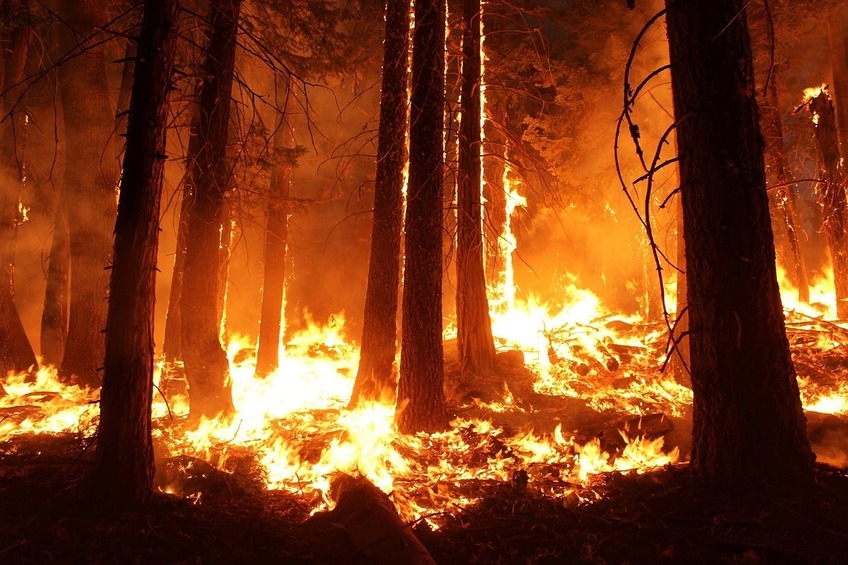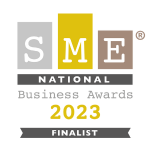BUSINESS COMMUNITY
Preparing your small business for climate change

Global leaders converge on Glasgow between 31 October and 12 November 2021to attend the 26th United Nations Climate Change conference aka COP26. It will hosted under the co-presidency of the United Kingdom and Italy.
Under the 2015 Paris Agreement, countries submitted pledges, to limit greenhouse gas emissions. Every five years countries are supposed to enhance nationally determined contributions. This reporting was due in 2020 but due to the pandemic it has been pushed to 2021.
With the UK (and Italy) hosting the COP26 summit in Glasgow we thought it time to update our own sustainability blog post published in September 2019.
Have you thought about how climate change could, is or will impact your small business? It's not a simple case of making small adaptions - such as being more energy efficient and reducing waste. Your business may have to adapt in other ways, by reassessing your business plans and objectives, and potentially make radical changes to survive.
While this might seem a little dramatic, it's important to remember how interdependent small businesses are. Your ability to deliver your services or sell your products is closely linked to your supply chain and customer demand. If your supply chain is adversely affected by climate change you can expect costs to rise, shortages and even for certain resources to be unavailable. If your customer base is affected, demand for your products or services could fall.
Here in the UK, particularly where we're based in Bordon, Hampshire, adverse weather events and other symptoms of climate change can seem very remote. Of course, we've grumbled about the heat this summer and this may have reduced our productivity, but in general climate change and the impact on small business has not been a common topic of conversation in our business community.
However, it should be. Because if we start preparing now we have a chance of future proofing our small businesses and building some resilience.
How will climate change impact your small business?
Here are a few things to consider:
Supply chain: are there materials your business uses (or materials your suppliers need) that could be affected by climate change? Crop failures could be an issue for some companies, and we're already experiencing the impact of that here in the UK. Further afield, if you or your suppliers currently import materials from other areas of the world, are these sustainable in light of global heating? It may be time to explore alternative sources or even substitute an alternative product for one that's long term future is in doubt.
Q1) With issues being felt by supply chains post-Brexit and due to the pandemic how would further problems with supplies impact your business? Can you mitigate any of these issues by changing supplier, materials or reducing use of specific materials?
Rising costs: shortages - whether food or materials - will drive prices up, so again it might be time to find alternative suppliers or materials. Transportation costs are also on an upwards trajectory, and shipping products from one side the globe (or even within the UK) may no longer be viable. Can you find more local suppliers and reduce transportation costs?
Q2) Costs always rise, and with climate change costs are likely to spiral as demand outstrips supply. How do you reduce your business costs and focus on more sustainable methods of production, distribution and recycling?
Staffing: another consideration is the impact on your employees. Will they be able to continue to work for you effectively? Think about things like travel if your staff use their cars to get to work or need to drive or fly for business. Fuel costs and potential legislation around aviation could impact your employees' ability to get to work and do business. Now's the time to explore other ways of working and embed these in your business, such as remote working from home or a local coworking space, and digital technology like video conferencing to remove the need for travel. Start the transition now and also benefit from lower costs to both business and staff.
Q3) Working from home has become widespread, could your business cope with staff permanently working from home? How do you move to a WFH model for your staff?
Regulations: climate activists are demanding that government takes immediate action on the climate crisis and, if it does, in all likelihood that will involve tough new regulations to limit carbon emissions. Businesses may be hit by all kinds of regulations that can be expensive to comply with (remember GDPR?) and expensive if you don't. A bit of foresight now could help you reduce these costs and be more prepared for the future. Set yourself a target to be carbon neutral (it is widely agreed that the government's 2050 is too late and a more ambitious target of 2025 should be committed to). Develop a carbon neutral policy for your business and plans to get there, and make sure that you factor in the supply chain as well as your direct carbon footprint.
Q4) Change only happens because the majority agree with change, so start making your voice heard. Ask about what is happening locally, question local businesses, local leaders, politicians and organisations you may belong to. What are they doing to reduce climate change?
Demand: climate change could dramatically disrupt consumer confidence and our consumer economy. In fact many climate economists say that we have to radically change our economic model to stop global heating. Small businesses that sell luxury or non-essential products may need to question whether there will be sufficient demand for their products in the future. Factoring in the cost of manufacture or delivery which, as outlined above is likely to rise substantially, will your product have a viable market in the future? Remember that customers will be affected by rising prices in other areas too, so may need to change their buying behaviour to manage their household and business budgets more efficiently.
Q5) Demand for raw materials is likely to increase across most sectors, the recent fuel shortages in September - October 2021 has shown how quickly situations change and become critical to business operations. Are you looking at new business models? Can you adopt new ways of doing business, maybe modelled on other industries or businesses?
Can your small business mitigate against climate change?
While the potential threats to your small business could be very severe, there may be ways you can mitigate against climate change and even opportunities to explore.
The first step must be to become as sustainable as possible: make the small adaptions like reducing waste, energy efficiency measures and develop a carbon neutral plan with ambitious targets.
Next, think about the following:
- Increase your business' agility: agile small businesses are much more responsive than larger corporates. Agility is a mindset as much as the way a company is structured or the systems it uses, so practice having a more flexible and agile approach to business. This might mean tearing up your current 10 year business plan and starting again, but it's much better to do this than trying to achieve a goal that's unfeasible in the context of global heating. Having an agile mindset is important for your staff too. If climate change affects your business, how you work and what you do, it will naturally affect your staff. The job they initially signed up for could be very different in 5-10 years time. Help them cope by teaching them how to embrace change now.
- Localisation: if the impact of climate change on your small business will make it harder to do business with global or national partners, start building a more local supply chain and customer base.
- Put pressure on your suppliers: the more businesses that commit to carbon neutral targets the better, but also put pressure on your suppliers to shore up their supply chain and address the threat of climate change now. This will not only help protect your business but also the supplier's business and its other clients.
- Community influence: small businesses also have influence in their local communities and can help persuade other businesses, local authorities and residents to make changes. Inspire others with your actions and promote collaboration on the climate emergency in your local community.
- Innovation: could you be part of the solution to climate change? Is there potential to channel some of your expertise and resources into developing solutions that either help reduce the threat or help people adapt? You might be surprised at what you have the capacity to do.
- Adaptation: explore whether you can adapt existing products, services or working practices to be more resilient. That could involve changing certain elements to make them more sustainable, building a different market now that will have demand for your product in the future, or adapting a product to address future customer needs as a result of climate change. For example, many food producers have introduced vegan products as demand has increased. The trend to a more plant-based diet is expected to grow as more people make this lifestyle choice for environmental reasons, and meat and dairy farming becomes increasingly unsustainable. Could you expand your product or service range in a similar way?
- Differentiation: while it may seem immoral to use the climate emergency as an opportunity, if your business is practicing sustainability and has committed to carbon neutral targets it can be a differentiating factor for customers. Furthermore it also puts pressure on your competitors to review their sustainability and carbon neutral policies, and take action too.
We hope this post has helped you understand how climate change could impact your small business.
Last year the world's leading climate scientists warned that we only have 12 years to limit catastrophe. But even if we do manage to avert disaster, global heating will not stop overnight. Therefore, all small businesses must prepare for change, both worse case scenarios and the significant shifts in our energy, transportation and economic systems to keep global heating below 1.5C.
The SiGNAL team is currently exploring how we can support our local business community now and into the future, if you have any suggestions or can offer your expertise please get in touch.
If you want to start to take action why not attend our BiZHUB talk on the 12th November? Local sustainability expert and owner of Mesh Energy, which is an award-winning, independent energy consultancy helping architects, homeowners, and commercial clients to create low-energy buildings with sustainable practices and materials.
His talk "How Healthy is Your Environment? "will focus on making your workplace more sustainable and healthier for this working with you.
Click below to book today







